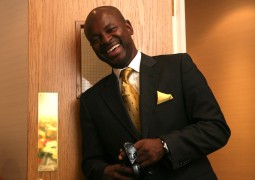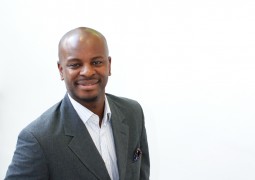BioHacking and Teemu Arina – Part 2/2
by 0

>>> This is the second part (2/2) of our interview with Teemu Arina <<<
>>> You can read the first part (1/2) of our interview with Teemu Arina click here <<<
 You like numbers and statistics. Do you have formulas like seven and a half hour is the optimal sleeping period, three-hour work per day is optimal?
You like numbers and statistics. Do you have formulas like seven and a half hour is the optimal sleeping period, three-hour work per day is optimal?
There are definitely some models that you can apply. For ex. For nutrition; how much you need to consume in a day. If you want to do what you have to eat less than what you consume. Those are general measurements give you a direction. If you change the macronutrient balance, the balance between protein, carbohydrates, and fats, suddenly calorie doesn’t count anymore. For ex. If you increase the amount of fat greatly and you eat several thousand calories over your basal metabolic rate, you reduce the carbohydrates then the energy source changes from glucose, sugars into fats into ketones.
The fact what you are eating triggers your body to burn fats, so you lose weight but you burn your long-term storage fat for energy. This is the low cal diet. For exercise, you can measure your heart rate what does the maximum heart. It requires a lot of experience factors what really works. So there is no one diet or one formula.
Is a biohacker his own doctors?
Yes, indeed. We don’t have family doctors in most of the western countries. You have an appointment with the doctor for 15 minutes and they try to make a diagnosis. They say ‘Here is medication and come back if symptoms continue.’ So most of the people are not getting well after the basic protocol. For me treating illness is much more expensive then improving wellness. I rather focus my interest and energy to prevent the illness.
How do you do that?
I’m having a blood test each quarter. I have 150 different biomarkers. If you compare to check out that the normal people are having once in a decade, I have much more tests done each quarter. I know what happens when I change the dietary or I see how these things that affect in my body from my blood markers. It’s not about the snapshot, once in a decade. I have it every quarter I can try to check how things are moving. That means that you become an expert interpreting your own data and understanding your own weaknesses.
I sequenced my genome. You have in your body ten times more foreign DNA affecting your biochemistry in your own cells. We are living in symbiotic relationship bacteria on our skin or guts. If I travel somewhere in the Middle East, when I come back my gut bacteria have always changed. I believe in these times no one is more interested in your health than yourself.
Are there any tools to analyze the collective data and generate reports?
Yes, in the US there is a company called WellnessFX, which is doing blood tests. If you input your data into their system, they give you a nutrition recommendation, supplements, exercise protocols. There are companies that can take your DNA. Your genome test is done for $99 in the US. You can download your genome and a UK based company called “DNA Fit”, they can tell you about your metabolism, your muscle type, how your energy systems work. So they can give recommendations about exercise, diet that is good for you.
Those are private companies. Is there any application that’s it you can that analyze your data personally on your own laptop like artificial intelligence? Is there any privacy concerns?
Yes, when you are sending those data to those private companies in foreign countries. Certainly there is that issue. If you sequence your genome for ex. you use an American company even though right now they cannot access the data but in the future, they might. We don’t know whether this data that will be used for another purpose.
There is a film called “Gattaca”, which shows how the DNA is used. It explains sort of a post-modern society that based on their DNA people are decided to their professions.
In the USA if you accept to use a device in your car, which collects your driving style data.
I appreciate the way you analyze yourself. It is very respectful behavior towards you. I feel it is not an easy way of living.
Some people ask me about it. They even call it ‘neurotic’. My take on this is I’m not using a lot of time for keeping data. I want things to be in the background, happening all the time. My phone is a keeping the data about my physical activities. I don’t even have to press the button. It’s the same with the sleep track. I don’t have to even try. I rather spend time on the analyzing part. The more you know, the less stressed you are.
What kind of self-control mechanism you have for ex-do you say ‘If I do this activity, my heart rate will increase or I shall not eat this’
Yes, definitely. You start to understand the consequences of your actions. In my case, it leads me to utilize strategies. You have different strategies for different days. For example, if I have a long day at talking, speaking at a conference or if it’s a day that I have a physical activity, I apply the different strategy.
So it affects your lifestyle.
Yes, indeed. When you go out at night and have a drink and you know the consequences.
So you are not living a spontaneous life.
I’m not a fundamentalist. I can have a hamburger once in a while, I can drink some alcohol or I can smoke some tobacco. It is fine but it is my decision because I know the consequences. You can mitigate the damage. If you are eating something that you show not eat then you should reduce another thing to decrease inflammation. If you eat too much sugar every day, you may have diabetes. If I drink more than two glasses of alcohol, the gluten in the liver breaks down. Alcohol is metabolized by the liver to form products that may be toxic to cells, which is why you get the hangover. So I may get supplements to pump up my gluten level in my liver.
It is important to understand the system. It is not healthy to run a marathon; it is degenerative to the body and dangerous especially if you do it repeatedly. People still do it; they enjoy the rush of it. Maybe it is the enjoyment of life that you push the boundaries and experience different ways. It’s totally fine once in a while. Problems arise in the long term. Getting drunk is not a problem but doing it repeatedly is the problem. I want to wake up with the best version of myself in the morning.
And you plan to live longer.
I want to live longer perhaps but the target is not living longer. The target is living healthier and enjoy your day. There may be days my brain is not functioning, and then I’m not going to enjoy it.
If you have a functioning brain then you may have replaced your organs. What is your opinion on the 3D printed organs?
So the technology is improving. This is a possibility about all have consequences. Some people can be very distracted. So if they know that they can replace it that they may smoke more and the other day they want to change their lungs So in the future we may see not restoring but operating functions organs will be changed like the eyes. As you may have it eyes that can see four times further even in infrared light and it will be connected to the cloud. Some people do that even if they do not need it. In Paralympics, for example, they run faster than the normal people. Maybe there will be no Olympics in the future we will be seeing half human half machine people more. Then we come to the question ‘is technology aligning us? For me technology is an extension of us and they do nothing apart from us. We shape our tools and our tools shape us. Humans will begin to look at into their bodies, as they have changed their environment.
What do you have described it is about an optimal human being?
It is our responsibility. We are given this body. I appreciate the existence. I’m going to use my capability, a noble, humble go. Nature is very complicated. Who is observing is creating their own reality? There are always things outside of our experience. It is just fascinating. Exploration is a journey, wandering around and thinking why we are here and where we are going. To me humans, as they use fire, wheel, agriculture, and computer, are destined to use technology to fulfill our needs or just for discovering the space. Is there a purpose to it? Maybe not but it is a self-fulfilling activity.
How many gadgets are you using in your daily life? If I want to be biohacker what are first steps to do?
The first thing to do is to look at the things that you do repeatedly. How much you sleep, how many hours you spend time with computer etc. Then you look the data and what you can learn from it. Sleep tracking is the easiest. You don’t even need to buy an external device if you have a smartphone. They are not hundred percent accurate but it is good for the beginning. Then you could buy another a gadget sad that you can put it on your bed that will measure things more accurate.
There is a company called “Emfit”. It doesn’t require a lot of investment. The other thing you can do think on three things that affect you during the day and it is a change in perspective. In time you will get used to it, you will begin to realize more. What you pay attention is what to react. Most of the people highlight to negative things that happen during the day, others highlight that nothing has happened. Always something happens. If you really reflect on it, it will change your perspective.
Do we come to the point that there are no defined diets for everybody?
There are some principles. You shall select the best olive oil, eggs, milk whatever you eat. So you should not eat too much of produced sugar. You have to find the balance.
Do you believe in organic food?
I’m into organic food bwhile producing the product ends up in the food. I select the option not to put those chemicals into my body. ‘I am what I eat’ I’m concerned about the environment, food chain, and the agriculture. According to the studies, I read I prefer to avoid.
Thank you.
I thank you too.
>>> This is the end of second part (2/2) of our interview with Teemu Arina <<<
>>> You can read the first part (1/2) of our interview with Teemu Arina click here <<<





